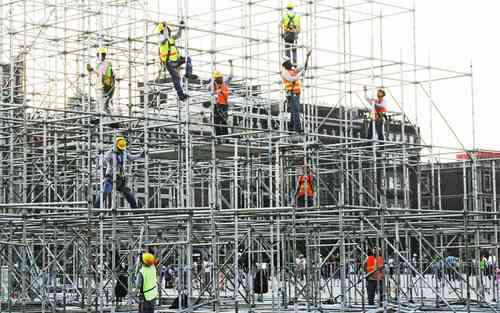
Beyond Hours Worked: The Importance of Employee Well-being for Productivity in the Workplace
Mexico leads in the number of hours worked, according to the OECD, but this does not translate to productivity. With 2,137 hours per year per worker, Mexico almost doubles the number of hours worked in countries like the United States and Canada. However, the contribution to the GDP per hour worked is very low at only $22.2, compared to countries with fewer working hours like the United States, which averages $77.1. Ireland, with only 1,772 hours worked per year, contributes $109.5 per hour to its economy for each worker.
Yunue Cárdenas, coordinator of the psychology HUB at Affor Health, emphasizes that having productive employees goes beyond just working long hours. It involves creating a positive work culture, addressing psychosocial risks and paying attention to employee mental health.
Workplace presenteeism has become a significant issue that affects both employees and companies alike. It occurs when an employee appears at work but their performance is poor due to factors such as excessive workloads or stress-related anxiety and depression burnout and negative work environments. Affor Health, a consulting firm specializing in psychosocial preventive management says that presenteeism can have a negative impact on workplace productivity and needs to be addressed carefully by companies.
In light of the return to offices after the pandemic many companies are reevaluating their processes and realizing that true productivity is closely related not just responding to emails or messages but also takes into consideration mental health care and organizational climate.
Lack of attention towards psychosocial risks in the workplace is often a trigger for presenteeism so it’s crucial for companies to analyze their risks and implement measures support employee mental health.
To address presenteeism effectively companies should focus on creating a supportive work environment by implementing measures such as flexible working arrangements or providing more resources for mental health support.
It’s important for employers not only consider productivity metrics such as hours worked but also take into account other factors such as job satisfaction levels and overall well-being of their employees.
In summary Mexico may lead in hours worked but lacks productivity due to low GDP contribution per hour worked while Ireland despite having less working hours contribute more to its economy due to better focus on employee well-being and psychosocial risks management.
Affor Health highlights that having productive employees goes beyond just working long hours it involves creating a positive work culture addressing psychosocial risks paying attention employee mental health wellbeing.
Presenteeism can negatively impact workplace productivity hence it’s crucial for companies reevaluate processes understand true productivity is closely related not just responding emails messages but also taking into consideration mental health care organizational climate

